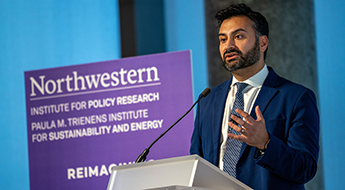Cells to Society: How Experience Becomes Biology
Get all our news
C2S is unique in the set of conceptual and methodological tools that we bring to bear around measuring and interpreting biology and how it matters in a social context.”
Thomas McDade
Carlos Montezuma Professor of Anthropology and C2S director
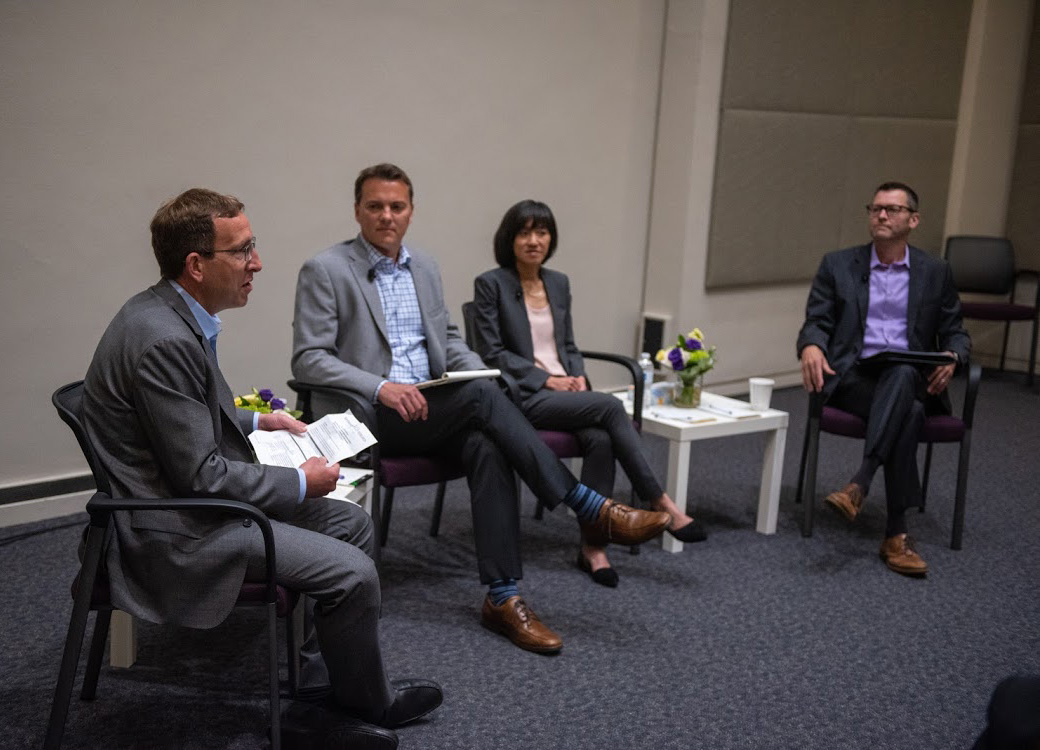
From left: Greg Miller investigates the impact of social and biological environments on health outcomes with Christopher Kuzawa, Edith Chen, and Thomas McDade.
IPR health psychologist Greg Miller led an IPR@50 panel discussion on how physical and social environments affect human development and their impact on health from birth to old age—with fellows from the Institute’s Cells to Society Center (C2S).
“[C2S] is not a conventional or historical IPR topic,” Miller said in asking about the motivations for starting the Center.
IPR anthropologist Thomas McDade, one of the center’s founders and its current director, recalls telling those who initially approached him about working with IPR social scientists in 2003, “I don’t do policy research.” But his ensuing interactions with a “cabal” of IPR fellows made him realize that “there was something there.”
A West Coast retreat to discuss determinants of health eventually led to the launch of C2S in 2005. McDade outlined the center’s subsequent research agenda as centering on the role of stress in health disparities, the importance of families and relationships in physical and mental health, and the effects of disparities across generations.“C2S is unique in the set of conceptual and methodological tools that we bring to bear around measuring and interpreting biology and how it matters in a social context,” McDade said. He also noted how the integration of biology into social science research allows them to answer policy questions that other disciplines cannot.
The use of biomarkers—measures of biological processes and health—allows us to document how experience becomes biology and understand how our health is shaped by our roles and positions in society, McDade explained.
IPR anthropologist Christopher Kuzawa described how our physical and social environments shape human biology. C2S researchers focus on the environment during development in the womb and beyond, which can have profound impacts on health and outcomes.
While day-to-day environmental stressors matter to development across a person’s life, another involves “plasticity,” or the sensitivity of a developing body to the environment during the earliest stages of development.
“Earlier environments tend to matter more than later environments because that’s when development is most rapid,” Kuzawa explained, pointing out how much pregnancy and early childhood—and to some extent, even the health of prior generations—can shape a person’s health.
Additionally, Kuzawa noted, people’s shared experiences of class or ethnicity as well as social stressors such as racism or poverty can influence development. The patterns and structure of health disparities in society are linked to people’s social circumstances, which hold implications for policy.
While acknowledging that social disparities are very present in society and can hold harmful effects across a person’s entire life, IPR health psychologist Edith Chen discussed another body of C2S research investigating outliers to this idea—or how some people who, despite adverse environments, manage to remain healthy.
In work with Miller, she finds one of the biggest buffers against such adversity stems from nurturing family relationships, especially between children and their parents. Children with parents who are warm and attentive are more likely to be resilient and healthier.
Those individuals who can regulate their emotional responses to the social stresses in their environment are also more likely to be healthier. Chen calls this coping strategy “shift and persist.” She observed that the promotion of resilience and persistence through policy is possible, for example, through interventions to strengthen family relationships and improve parenting.
Miller asked what changes and challenges the researchers expected to see over the next 15 years.“The challenge to us as a group at C2S over the next 15 years is to make ourselves and our research more and more policy relevant,” Chen said, pointing out how essential it is to bring biological research to the attention of policymakers.
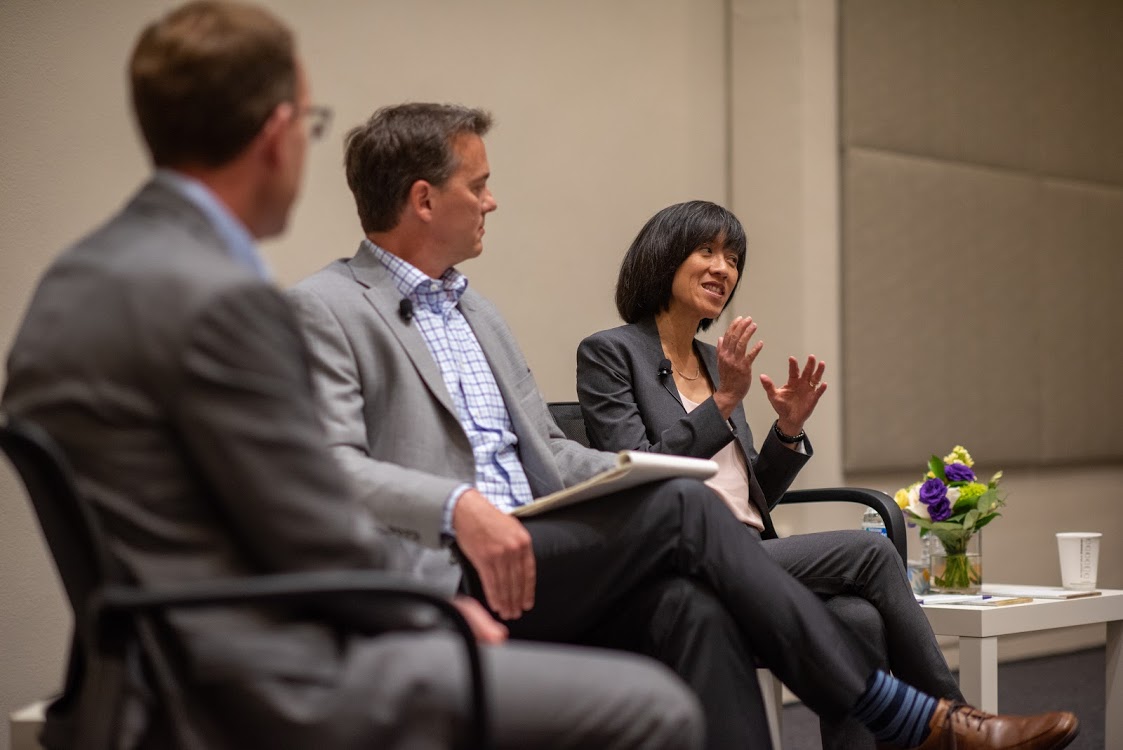
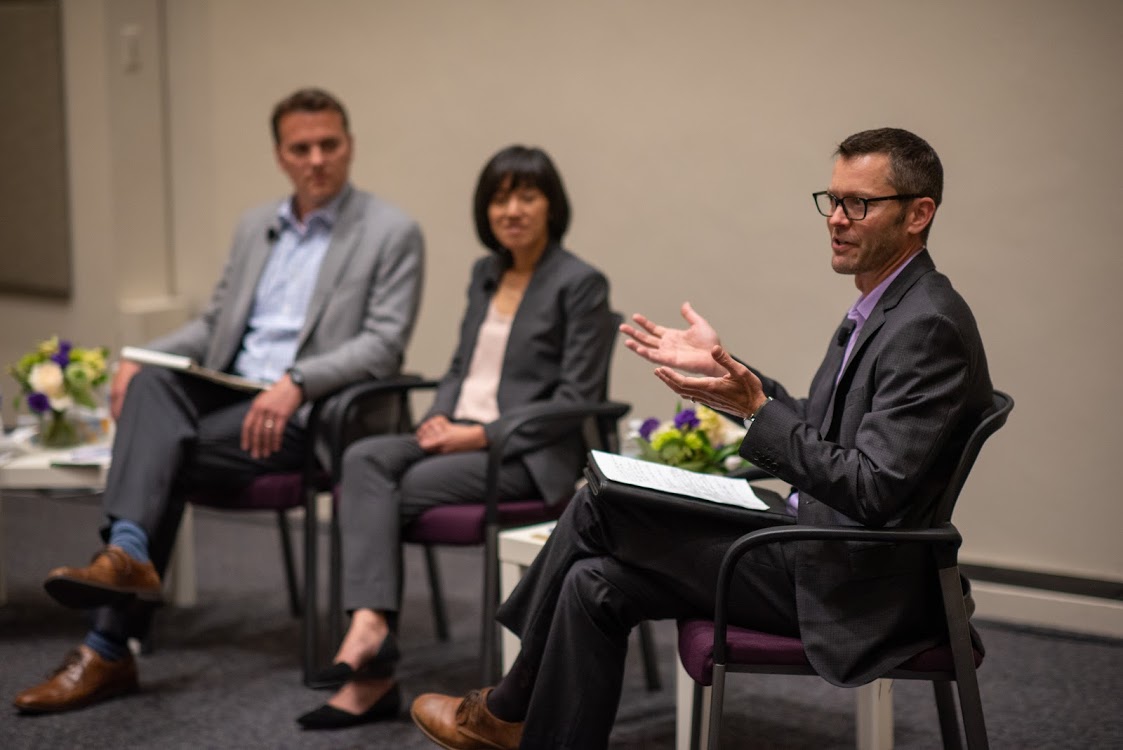
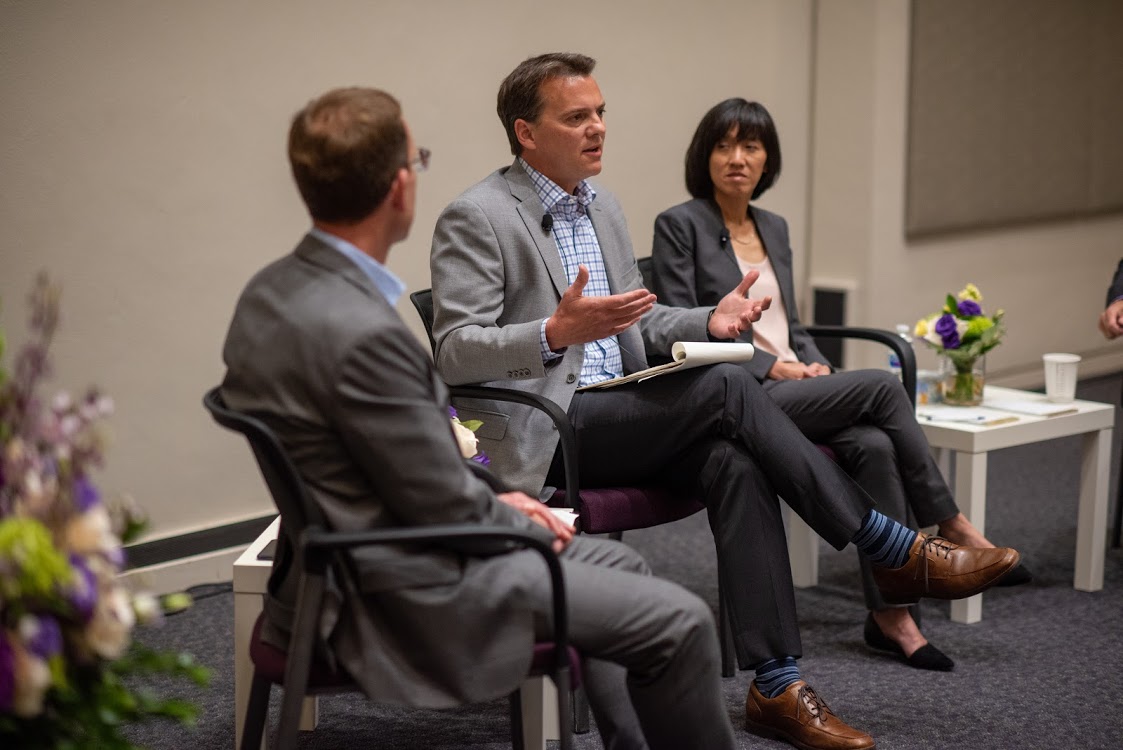
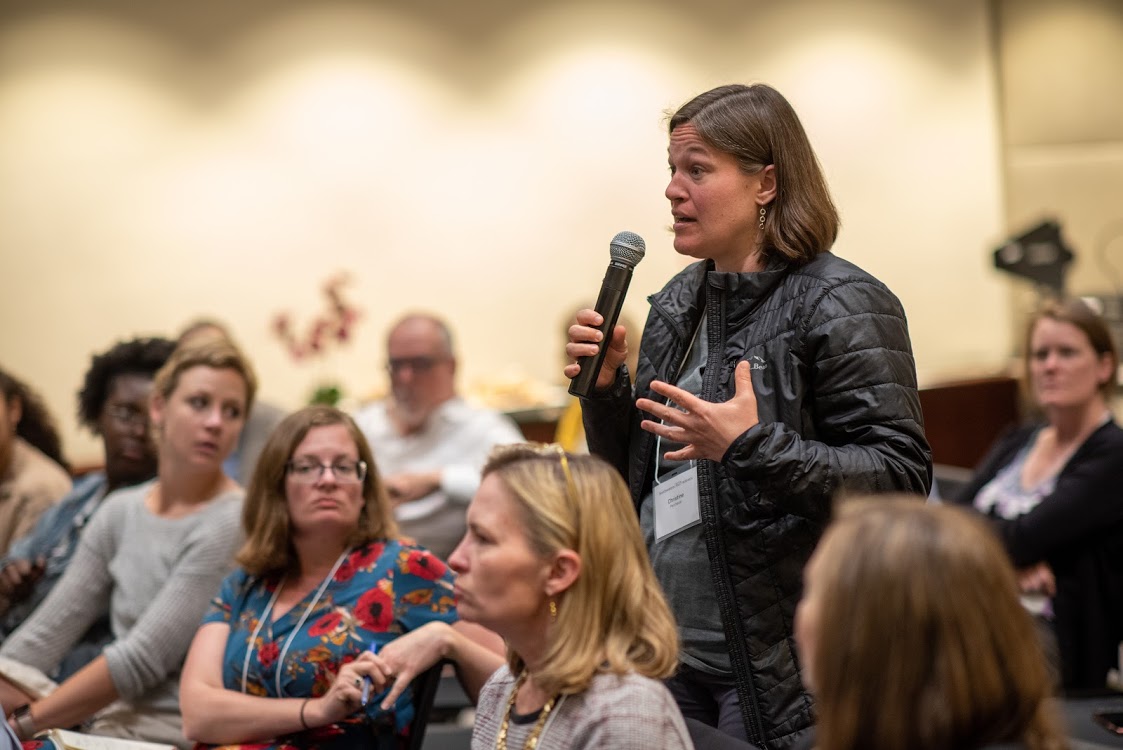
Edith Chen is the John D. and Catherine T. MacArthur Chair and professor of psychology. Christopher Kuzawa is professor of anthropology. Thomas McDade is the Carlos Montezuma Professor of Anthropology and C2S director. Greg Miller (moderator) is the Louis W. Menk Professor of Psychology. All are IPR fellows and depicted in the photos above, in addition to Christine Percheski (lower right), associate professor of sociology and an IPR fellow.
Photo credits: Rob Hart.
Published: June 27, 2019. Updated: July 17, 2019.


